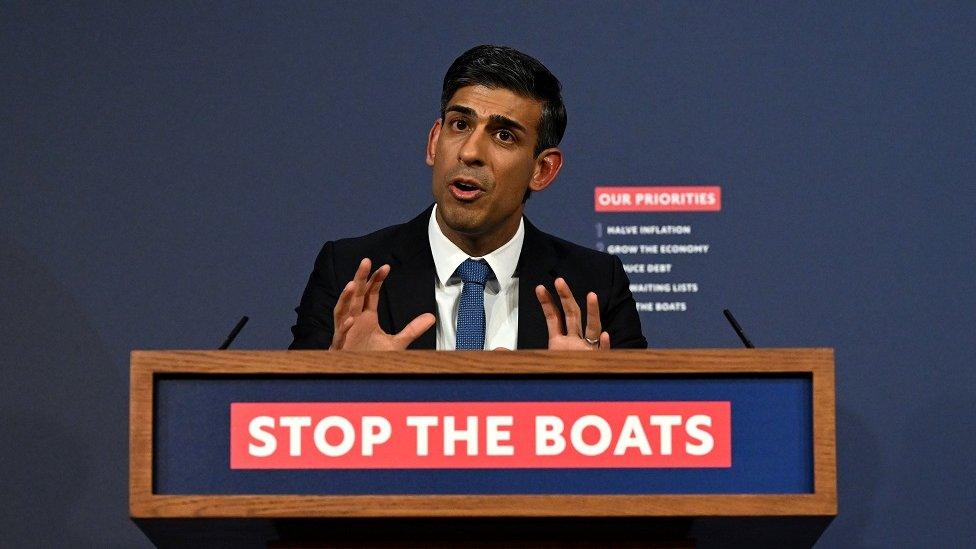Cost to remove a migrant £63,000 more than keeping in UK
- Published
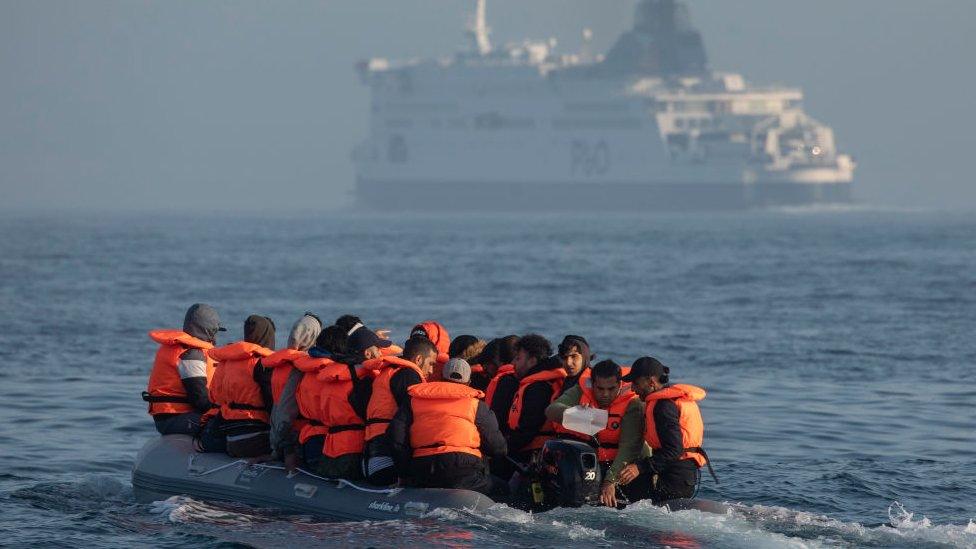
It could cost an estimated £63,000 more to send a migrant to a "safe country" such as Rwanda than to keep them in the UK, the government has said.
An economic impact assessment, external of the Illegal Migration Bill, which is going through Parliament, found a gross cost of £169,000 to relocate an individual.
But the estimated £106,000 spent on housing support if they remained in the UK would be avoided.
The government said the policy would also have a deterrent effect.
The Home Office assessment said no cost would be incurred if an individual was deterred from entering the UK illegally.
However, it said it was "uncertain" what level of deterrence impact the policy would have because the bill was "novel and untested".
It also said the potential savings were "highly uncertain" but gave an estimated figure of between £106,000 and £165,000 per individual. The higher figure takes into the account the possibility of housing costs continuing to increase.
Enver Solomon, chief executive of the Refugee Council, said the government's "own assessment" acknowledges the policy "is likely to be unworkable".
"There was once something called evidence informed policy making," Mr Solomon told BBC Radio 4's Today Programme. "This is not happening now," he added.
The Refugee Council wants more safe routes created for refugees to reach the UK, to stop small boat crossings.
Conservative MP Craig Mackinlay called the policy an "imperfect tool" but argued it would have a deterrent effect - which would lead to savings.
Mr Mackinlay told Today: "This is a spend to save scheme.
"If you can deter three from coming while paying for two - you're in the exact same position."
Other additional savings beyond accommodation costs include those associated with resettling a migrant in the UK, such as benefits, social housing and healthcare.
The report estimates the policy would need to deter 37% of people from entering the UK illegally for there to be no cost to the taxpayer.
The bill aims to stop people crossing the Channel in small boats by preventing anyone arriving in the UK illegally from claiming asylum.
Instead they would be detained and removed, either to Rwanda or another "safe country".
The total estimated cost of relocating an individual to Rwanda or another third country includes a payment to that country of around £105,000 per person, as well as £22,000 for flights and escorting the individual.
The figure assumes a flight can seat 50 individuals being relocated but flights may depart with fewer people on board.
Other costs include detaining individuals while they are processed.
The costs are theoretical estimates rather than the actual cost of the Rwanda agreement, which is commercially sensitive.
Labour said the impact assessment was "a complete joke" and the government was "totally clueless" about how much the bill would cost.
"The few figures the Home Office has produced show how chaotic and unworkable their plans are," shadow home secretary Yvette Cooper said.
She added that "the true cost" may be higher as the government had not costed the possibility of people being held in "indefinite detention".
Home Secretary Suella Braverman said: "Our impact assessment shows that doing nothing is not an option.
"We cannot allow a system to continue which incentivises people to risk their lives and pay people smugglers to come to this country illegally, while placing an unacceptable strain on the UK taxpayer."
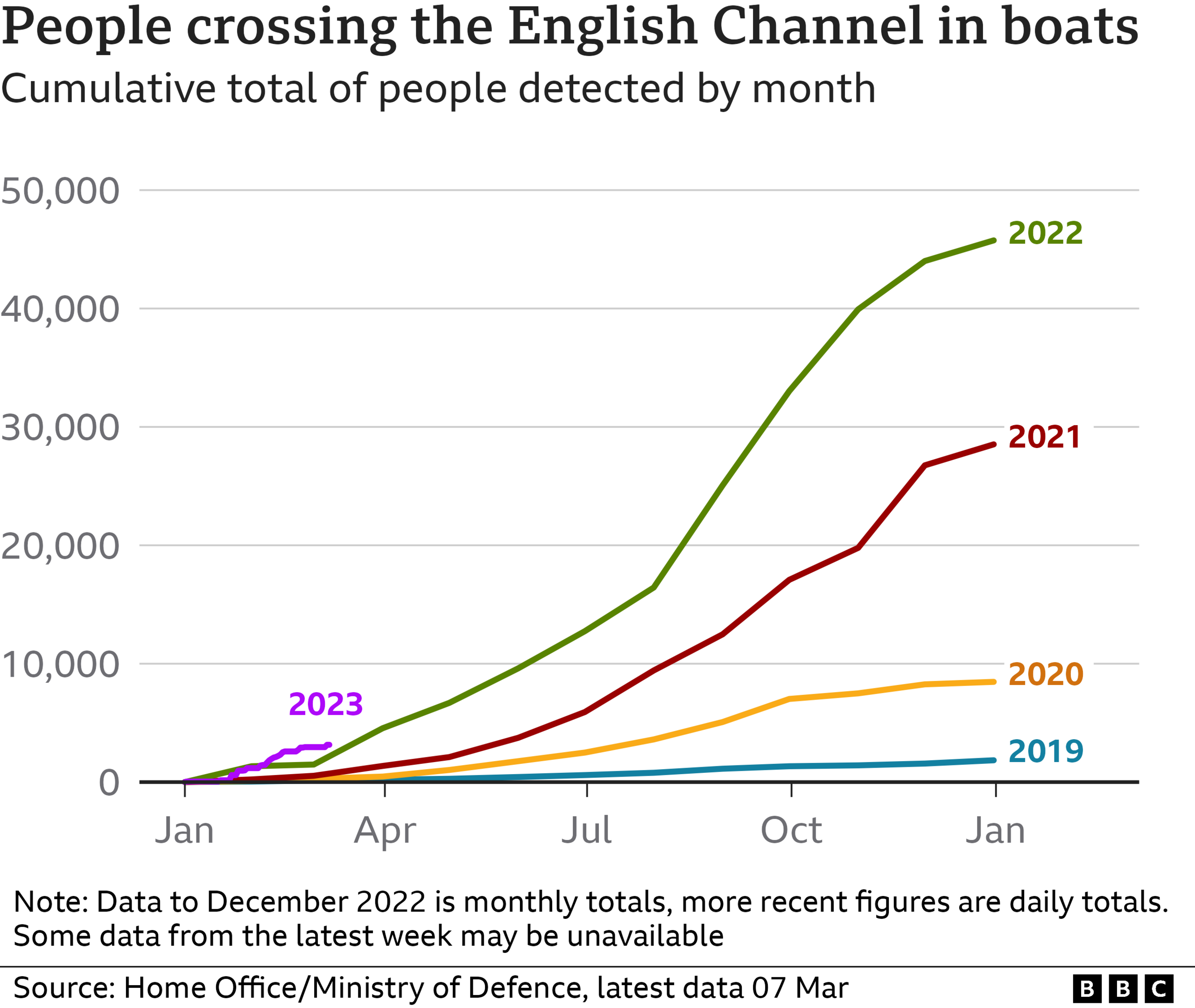
On Tuesday, the Women and Equalities Committee published a report calling for children to be exempted from detention or deportation to Rwanda, under the government immigration plans.
The committee's chair, Tory MP Caroline Nokes, a former immigration minister, said: "The risk of harm to children outweighs any perceived damage to the effectiveness of the government's policy agenda."
The UK is spending £6m a day to house asylum seekers in hotels.
Last year more than 45,700 people made the dangerous journey across the Channel in small boats.
Prime Minister Rishi Sunak has made stopping the crossings one of his five key priorities, with the bill central to the government's plans to achieve this aim.
Rwanda is currently the only country the UK has a deal with to relocate migrants to but no flights have set off yet.
The High Court ruled in December 2022 that the scheme is legal, but that decision is facing further challenge in the courts, with a judgement due on Thursday.
The Illegal Migration Bill still needs to be approved by the House of Lords, where it has faced significant opposition, and could face further legal challenge if it becomes law.
Critics have argued the bill is unworkable and could breach international law.

Sign up for our morning newsletter and get BBC News in your inbox.

Related topics
- Published4 June 2023
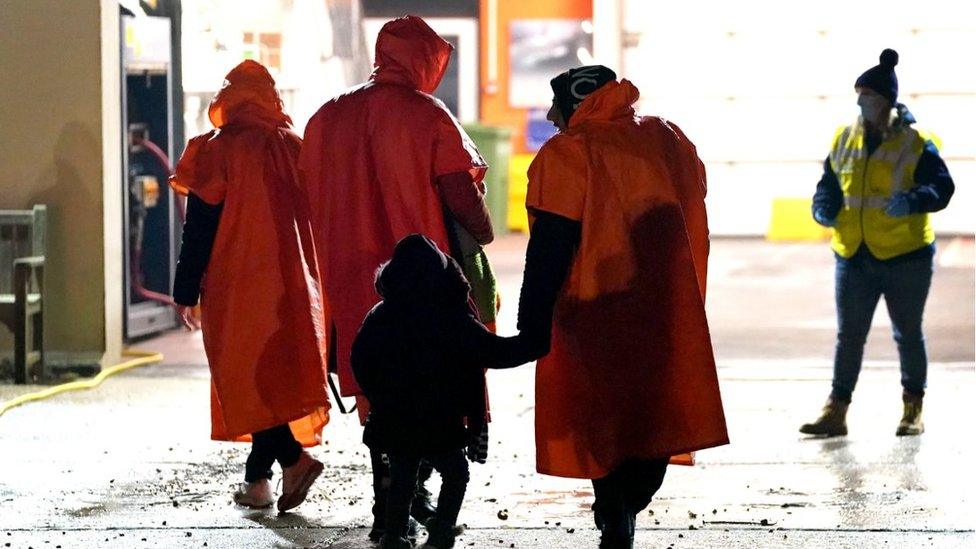
- Published24 April 2023
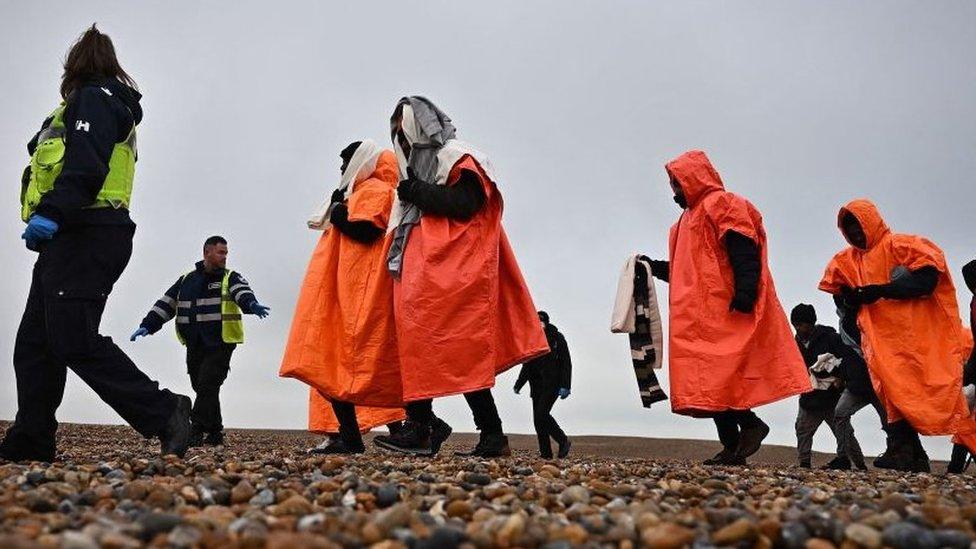
- Published13 December 2023
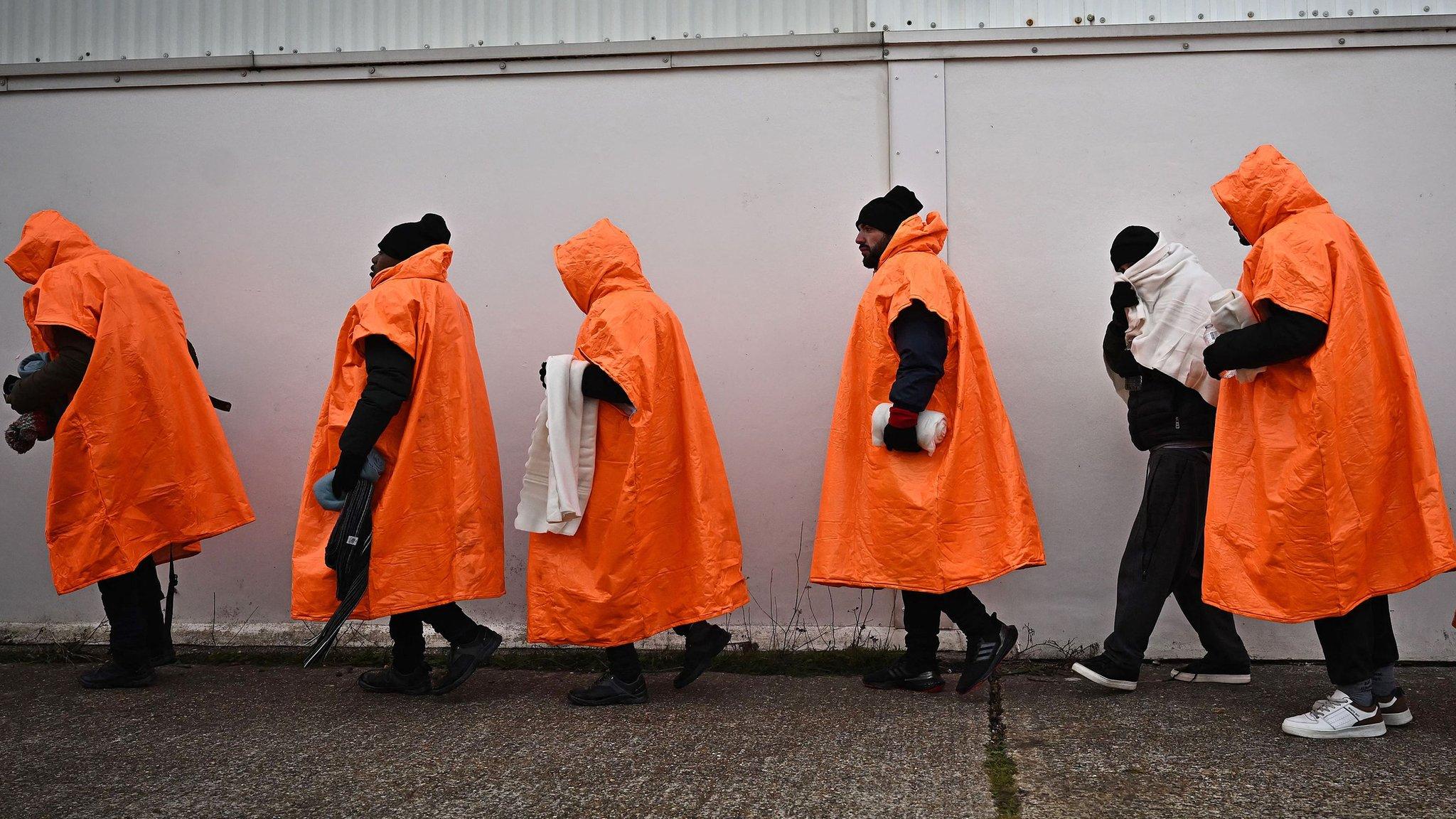
- Published9 March 2023
